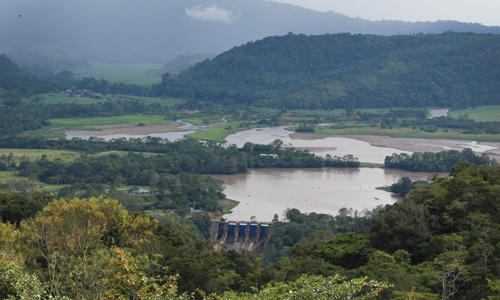Lack of strong science in Payment for Ecosystem Services (PES)

A paper published in Science this month reveals that an alarmingly small number of payment for ecosystem service schemes around the world are based on good science. Scientists advise a checklist of information you need to know before going ahead.
An article published in Science today reveals that 60% of Payment for Ecosystem Services (PES) interventions (out of 118 projects around the world) lack fundamental scientific principles to support them. A group of concerned scientists have developed a list of 33 scientific guidelines that policymakers and PES scheme designers should follow before moving ahead with PES interventions.
We interviewed Bioversity International scientist and co-author Fabrice DeClerck, to give us further insight into this paper.
Why are these scientific principles so important for PES schemes?
Scientific principles help ensure the integrity of an environmental intervention. Ideally, if a government or agency goes to the trouble of setting up a PES scheme, they would also want to make sure that the intervention delivers on desired outcomes.
Good science is needed to make the best decisions. If you assume, rather than measure the type of land uses or management practices that provide certain ecosystem services, you cannot accurately decide on the location or type of intervention needed. Nor can you justify the tax or fee paid by the beneficiary community. In a worst-case scenario, the PES scheme could even cause harm to people and the environment.
For stakeholders such as Bioversity International and CGIAR, who work a lot with impoverished communities, we have a responsibility to make sure our recommendations are scientifically sound and results in benefits for the communities we work with. We cannot place additional risk on livelihoods, food security or safety because of faulty science. This is valid for private sector companies too, who could suffer from significant reputational damage in the long run.
Why do you think these scientific principles are not being adopted?
Probably one of the main reasons is cost. Doing an accurate assessment of the ecosystem services provided by certain land uses requires significant technical capacity. In one of my colleague’s PES projects in Costa Rica, the highest cost of the project was doing audits of individual farms to verify land use had indeed changed. Decision-makers often have to weigh these costs – do I put the bulk of funding into audits and monitoring, or do I use those same funds to spread payments across a larger number of landowners? Getting more people engaged in a PES programme is often more attractive than strong monitoring of a small group of actors.
So what are the next steps? How can we get these principles to the right people?
First, even though the article in Science is mainly targeted at payment schemes, many of these guidelines are applicable to any ecosystem service-based approach or intervention. This is important to those of us working in development where the payment made for an ecosystem service is less important than ensuring a poor, or high-risk community has access to valuable ecosystem services. I would argue that scientific vigour is even more important when livelihoods are at stake.
As a magazine widely read by the scientific community and policymakers, we’re hoping that this article in Science will trigger some momentum on the topic. Many of the authors are also scientific advisors in their respective organizations and companies, including the World Bank, the US Environmental Protection Agency, The Dow Chemical Company and others.
In my own case, colleagues and I will be sharing these guidelines through the CGIAR Research Program on Water, Land and Ecosystems and other partners working on ecosystem-based approaches. A high priority for us is measuring the impact of ecosystem service-based approaches on livelihoods, and comparing that to other interventions. These 33 scientific guidelines provide a foundation to help us make those assessments.
Read the full paper in Science:
Get the Science Right when Paying for Nature’s Services
Find out more about Bioversity International’s work on agricultural ecosystems, and the ecosystem services and resilience theme we lead in collaboration with the CGIAR Research Program on Water, Land and Ecosystems.
